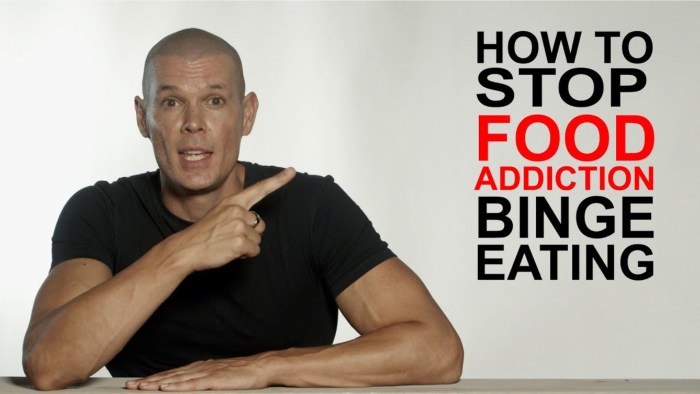
Embark on a journey to discover the secrets of selecting the perfect pharmacy that suits your needs. From essential factors to FAQs, this guide has you covered!
Are you ready to unravel the mysteries behind choosing the right pharmacy? Let’s dive in!
Factors to consider when choosing a pharmacy
When choosing a pharmacy, there are several important factors to consider that can impact your overall experience and health outcomes.
Location
- Proximity to your home or workplace for convenience.
- Accessibility for those with mobility issues or transportation limitations.
Hours of Operation
- Availability of extended hours or weekend services to accommodate your schedule.
- Emergency services or after-hours contact information for urgent needs.
Insurance Acceptance
- Pharmacy’s acceptance of your insurance plan to minimize out-of-pocket costs.
- Options for medication coverage and formulary restrictions within your plan.
Services Offered
- Availability of specialty medications or compounding services if needed.
- Additional services like immunizations, medication therapy management, or medication synchronization programs.
Reputation and Pharmacist Expertise
- Check online reviews or ask for recommendations from healthcare providers or friends.
- Quality of pharmacist-patient interactions and expertise in medication management.
Importance of pharmacy accreditation
Accreditation plays a crucial role in ensuring the quality, safety, and professionalism of a pharmacy.
Significance of Choosing an Accredited Pharmacy
- Verification of compliance with industry standards and best practices.
- Assurance of medication safety, accurate dispensing, and proper storage conditions.
Benefits of Accreditation
- Confidence in the pharmacy’s commitment to excellence and patient care.
- Potential eligibility for insurance coverage or prescription discounts with accredited pharmacies.
Differences between online and brick-and-mortar pharmacies

Online and brick-and-mortar pharmacies offer unique advantages and considerations for consumers.
Advantages and Disadvantages
- Online pharmacies provide convenience and privacy but may lack in-person interactions and immediate assistance.
- Brick-and-mortar pharmacies offer face-to-face consultations and same-day medication pickups but may have limited hours or longer wait times.
Factors to Consider
- Consider your preference for convenience, personal interaction, and urgency of medication needs.
- Evaluate shipping costs, return policies, and security measures for online pharmacies.
Tips for evaluating pharmacy services

When assessing a pharmacy’s services, it’s essential to consider various aspects to ensure quality care and reliable medication management.
Checklist for Evaluating Pharmacy Services
- Availability of prescribed medications and potential delays in restocking.
- Customer service quality, responsiveness to inquiries, and overall patient experience.
- Efficiency of the prescription refill process and ease of transferring prescriptions.
- Availability of consultation services with pharmacists for medication counseling or questions.
Red Flags to Watch Out For
- Frequent medication shortages, errors in prescription dispensing, or expired medications.
- Poor customer service, long wait times, or lack of privacy in discussing sensitive health information.
Understanding generic versus brand-name medications
When it comes to medications, patients often come across the terms generic and brand-name. It’s essential to understand the differences between these two options to make informed decisions about your healthcare.
Differences between generic and brand-name medications
- Generic medications are copies of brand-name drugs that have the same active ingredients, dosage, and effectiveness. They are usually more affordable as they don’t involve the same research and development costs.
- Brand-name medications are developed and patented by pharmaceutical companies. They are often more expensive due to the costs associated with research, development, and marketing.
Factors to consider when deciding between generic and brand-name medications
- Cost: Generic medications are usually more cost-effective than brand-name drugs.
- Effectiveness: Both generic and brand-name medications are equally effective in treating medical conditions.
- Insurance coverage: Check with your insurance provider to see if they cover brand-name medications or offer incentives for choosing generic alternatives.
Importance of pharmacist-patient communication
Effective communication between pharmacists and patients plays a crucial role in ensuring safe and optimal medication use. Building a strong relationship with your pharmacist can lead to better health outcomes.
Role of effective communication between pharmacists and patients
- Pharmacists can provide valuable information about medications, potential side effects, and interactions to help patients make informed decisions.
- Patients can share their concerns, preferences, and health goals with pharmacists to receive personalized care and support.
Tips for fostering open and clear communication with your pharmacist
- Come prepared with questions and concerns about your medications during pharmacy visits.
- Be honest about your medication adherence, side effects, and any other health issues you may be experiencing.
- Ask for clarification if you don’t understand instructions or information provided by the pharmacist.
How to verify the legitimacy of an online pharmacy
When considering purchasing medications from an online pharmacy, it’s crucial to ensure its legitimacy and safety to protect your health and well-being.
Steps to verify the legitimacy of an online pharmacy
- Check for a valid license: Ensure the online pharmacy is licensed and regulated by the appropriate authorities.
- Look for accreditation: Choose online pharmacies that are accredited by recognized organizations like the National Association of Boards of Pharmacy (NABP).
- Verify contact information: Make sure the online pharmacy provides a physical address and contact details for inquiries or concerns.
Potential risks of using an unverified online pharmacy
- Receiving counterfeit or substandard medications that can be ineffective or harmful to your health.
- Data privacy and security risks if personal information is compromised on unsecured websites.
- Lack of professional supervision and guidance on medication use, leading to potential adverse effects or interactions.
Considerations for specialty medications
For patients requiring specialty medications to manage complex or rare conditions, choosing a pharmacy that specializes in dispensing these drugs is essential for personalized care and support.
Importance of choosing a pharmacy for specialty medications
- Specialty pharmacies have expertise in handling complex medications and providing specialized services tailored to individual patient needs.
- Access to support programs, counseling, and resources specific to specialty medications can enhance patient adherence and treatment outcomes.
Factors to consider when selecting a pharmacy for specialty medication needs
- Accreditation and certification: Choose a specialty pharmacy that is accredited and certified to ensure high-quality care and services.
- Availability of medications: Ensure the pharmacy has a reliable supply chain for specialty drugs and can promptly fulfill prescription orders.
- Patient support services: Look for pharmacies that offer comprehensive support programs, counseling, and resources to assist patients in managing their specialty medications.
Importance of personalized medication management
Personalized medication management services offered by pharmacies can greatly benefit patients by providing tailored care based on individual needs. These services can improve treatment outcomes by ensuring that medications are appropriate, effective, and safe for each patient.
Role of technology in pharmacy services
Technology plays a crucial role in modern pharmacy services, offering convenient solutions such as online prescription refills, mobile apps for medication reminders, and telepharmacy services for remote consultations. These technological advancements enhance accessibility and efficiency in pharmacy care, making it easier for patients to manage their medications effectively.
Tips for maintaining medication adherence
Improving medication adherence is essential for successful treatment outcomes. Strategies such as setting reminders, using pillboxes for organization, and tracking progress can help patients stay on track with their medication regimens. Following prescribed medication schedules diligently is vital for managing chronic conditions and achieving optimal health results.
Considerations for choosing a pharmacy for specialized healthcare needs
When selecting a pharmacy for specialized healthcare needs, it’s important to consider factors like compounding services for customized medications, medical equipment supply for specific requirements, and home delivery options for added convenience. Tailored services are crucial for individuals with specialized healthcare needs to ensure they receive the appropriate care and support for their unique conditions.
Importance of pharmacist counseling and education
Pharmacist counseling and education play a crucial role in ensuring the safe and effective use of medications for patients. Pharmacists are highly trained healthcare professionals who can provide valuable information and guidance to help patients understand their medications better.
Examples of situations where pharmacist counseling can make a difference in patient care
- Explaining potential side effects and how to manage them
- Ensuring proper medication adherence and dosage instructions
- Identifying and resolving drug interactions
- Providing recommendations for over-the-counter products
Strategies for cost-effective medication management
Effective medication management involves not only taking medications as prescribed but also finding ways to make treatment more affordable. Here are some strategies to help manage medication costs:
Tips for managing medication costs
- Consider switching to generic medications
- Explore prescription discount programs or coupons
- Discuss financial concerns with your pharmacist for possible cost-saving alternatives
Role of community pharmacies in promoting public health
Community pharmacies play a vital role in promoting public health by offering essential services beyond dispensing medications. They serve as accessible healthcare hubs for the community and provide valuable resources for preventive care.
Impact of community pharmacies on improving population health outcomes
- Administering vaccinations to prevent the spread of infectious diseases
- Conducting health screenings for early detection of health conditions
- Offering health education programs to promote wellness and disease prevention
Considerations for choosing a pharmacy with holistic health services
When selecting a pharmacy, considering holistic health services can provide a more comprehensive approach to healthcare. Integrating natural remedies, wellness products, and alternative therapies into traditional pharmacy care can offer additional benefits for overall health and well-being.
Benefits of integrating holistic health services into traditional pharmacy care
- Supporting overall health and wellness through a holistic approach
- Enhancing treatment options beyond conventional medications
- Promoting a focus on preventive care and lifestyle management
Last Point
In conclusion, navigating the world of pharmacies doesn’t have to be daunting. Armed with the knowledge from this guide, you can confidently make informed decisions and prioritize your health needs. Cheers to finding your ideal pharmacy match!
Q&A
How do I know if a pharmacy is reputable?
Check for reviews online, ask for recommendations from friends or healthcare providers, and ensure they have proper accreditation.
What should I consider when choosing between online and brick-and-mortar pharmacies?
Factors to consider include convenience, prescription delivery options, and the need for in-person consultations.
Is it important to choose a pharmacy that offers personalized medication management?
Yes, personalized medication management can significantly improve treatment outcomes by tailoring medications to individual needs.

